Every year, Constitution Day marks the signing of of the U.S. Constitution on September 17, 1787. Although Independence Day and Presidents’ Day were marked as such for many years, it was not until 1940 that the seeds of a Constitution Day were planted. “I am an American Day” was celebrated on the third Sunday of May and celebrated American citizenship. The holiday quickly gained popularity across the United States and the date was changed to September 17 during the 1950s to better reflect the origins of American citizenship. The name of the day also became the simpler “Citizenship Day.”
It was not until 2004 that Congress designated September 17 as Constitution Day alongside the existing Citizenship Day. This designation required all public schools and government offices to hold educational programming to promote constitutional literacy. The Jack Miller Center honors this important date every year by funding educational lectures across the country. These lectures further the Center’s mission of civic literacy and encourage citizens to learn more about our country’s origins.
Below is a collection of resources featured for Constitution Day 2021. Browse these resources or jump from section to section by clicking the links below:
Campus Events
In 2021, 40+ campuses around the nation are partnering with the Jack Miller Center to conduct Constitution Day events for students and the public. This day engages students in conversations about the role and meaning of the Constitution in American political life.
2021 Constitution Day Events
University of Alaska, Anchorage
"A Defense of Originalism" with John O. McGinnis, September 17
Click here to attend >>
American University
"The Political and Constitutional Thought of Alexander Hamilton" with Stephen Knott, September 20
Click here to watch >>
Arizona State University
"Patriotism – Our Most Contested Virtue" with Steven B. Smith, September 9
Click here to watch >>
Assumption University
"The 1619 Project: A Missed Opportunity" with Lucas Morel, September 15
Click here to attend >>
Baylor University
"Do We Still Live in a Constitutional Order?" with Arthur Milikh, September 14
Click here to learn more >>
Bellarmine University
"Is Constitution Day Worth Celebrating?” with Evan Bernick, September 24
Click here to learn more >>
Belmont Abbey College
"James Madison: The Founder of Modern Foundings" with James Ceaser, September 16
Click here to watch >>
Boston College
“Hamilton, Jefferson, and the Constitution,” with Peter McNamara, September 20
Click here to learn more >>
Campbell University
"Founding and Tradition in American Politics" with James Ceaser, September 15
Click here to watch >>
Carthage College
"The Constitution on the Civil War: History, Political Theory, and Law" with Thomas Power, Eric Pullin, and Paul Ulrich, September 17, October 15, and November 19
Click here to learn more >>
Catholic University of America
"Division, Unity, and the Supreme Court" with Mark Rienzi, September 21
Click here to watch >>
Christendom College
"Natural Rights, Natural Law, and the American Founding" with V. Phillip Muñoz, September 27
Click here to watch >>
Christopher Newport University
"Immigration and the Constitution: The Clash of the Two Ilyas" a debate with Ilya Somin and Ilya Shapiro, September 14
Click here to watch >>
Clemson University
"Reimagining the Great Emancipator" with Ralph Lerner, September 14
Click here to watch >>
Coastal Carolina University
"The U.S. Constitution: A Magnificent yet Imperfect Document" with South Carolina Supreme Court Justice Kaye G. Hearn, September 16
University of Dallas
"Does the Constitution Exist?" with Jonathan Culp, September 19
Click here to learn more >>
Emory University
"Hamilton: Beyond the Musical” with Bradford Wilson, September 17
Click here to watch >>
Florida Atlantic University
"The Right to Vote and the Constitution" with Astead W. Herndon, September 14
Click here to learn more >>
George Fox University
"Was the American War for Independence a Just War?" with Mark David Hall and John Roche, September 13
Click here to watch >>
University of Georgia
"On Juneteenth: History, Memory, the Present and the Future" with Annette Gordon-Reed, September 17
Click here to watch >>
The Institute for World Politics
"The Founders' Philosophy of Foreign Policy" with Christopher Burkett, September 16
Click here to watch >>
Jacksonville State University
"A Pro-Slavery Constitution?" with Michael Zuckert, September 16
Click here to watch >>
Lee University
"Constitution Day Quiz Bowl" with High School Students from Around the Region, September 17
Click here to learn more >>
Louisiana State University
"Criminal Procedure and the Roberts Court" with Stephen Smith, September 21
Click here to watch >>
Mercer University
"First Principles: What America's Founders Learned from the Greeks and Romans and How That Shaped Our Country" with Thomas E. Ricks, October 4
Click here to attend >>
Middlebury College
"Madison’s Hand: Revising the Constitutional Convention" with Mary Sarah Bilder, September 29
Click here to watch >>
University of Nevada, Las Vegas
"Can Partisan Representatives Make a Nonpartisan Constitution Work?" with Russell Muirhead, September 15
Click here to watch >>
University of North Texas
"Voter Access and Election Integrity" with Jan Johnson, Linnie McAdams, and Matthew Wilson, September 16
Click here to learn more >>
University of Notre Dame
Tocqueville Lecture with Supreme Court Justice Clarence Thomas, September 16
Click here to watch >>
Oglethorpe University
“The Separation of Powers or the Normalization of Tyranny” with Elizabeth Kaufer Busch, Daniel Cullen, and David Crockett, September 16
Click here to watch >>
University of Portland
"The Demise of Separation Between Church and State as a Legal Theorem" with Steven Green, September 16
Click here to learn more >>
Regent University
"Abraham Lincoln, Natural Equality, and the US Constitution" with Jason Jividen, September 24
Click here to watch >>
Rhodes College
"The Constitution of Knowledge" with Jonathan Rauch, Daniel Cullen, James R. Stoner, and Rebecca Tuvel, September 13
Click here to watch >>
Samford University
"Can Government Legislate Religion?" with James R. Stoner Jr., October 18
Click here to learn more >>
Skidmore College
"Author Meets Critics: A Constitution for the Living" with Beau Breslin, Henry L. Chambers Jr., Keith E. Whittington, and F. Flagg Taylor IV, September 28
Click here to watch >>
University of Tennessee, Chattanooga
"Lincoln, the Founding, and an America Worth Saving" with Lucas Morel, September 20
Click here to watch >>
University of Texas, Austin
"Benjamin Franklin and America's Unwritten Constitution" with Timothy Brennan, September 16
Click here to watch >>
Texas State University
"The Constitution as Critical History" with William B. Allen, September 15
Click here to watch >>
Utah Valley University
"Unpacking the Court: Considering Article III" with Various Speakers, September 16-17
Click here to watch >>
University of Virginia
"The Second Founding: The Fourteenth Amendment and America’s First Struggle for Racial Equality" with Ilan Wurman, September 20
University of West Florida
"Modern Lessons from an Old Thinker: Cicero's Philosophic Statesmanship" with Richard Dougherty, September 13
Click here to learn more >>
Xavier University
"Constitution Day Colloquium" with R.B. Bernstein, September 17-18
Click here to learn more >>
Benjamin Franklin’s Speech at the Constitutional Convention, September 17, 1787 From the Benjamin Franklin Historical Society:
I confess that there are several parts of this constitution which I do not at present approve, but I am not sure I shall never approve them: For having lived long, I have experienced many instances of being obliged by better information, or fuller consideration, to change opinions even on important subjects, which I once thought right, but found to be otherwise. It is therefore that the older I grow, the more apt I am to doubt my own judgment, and to pay more respect to the judgment of others. Most men indeed as well as most sects in Religion, think themselves in possession of all truth, and that wherever others differ from them it is so far error. Steele a Protestant in a Dedication tells the Pope, that the only difference between our Churches in their opinions of the certainty of their doctrines is, the Church of Rome is infallible and the Church of England is never in the wrong. But though many private persons think almost as highly of their own infallibility as of that of their sect, few express it so naturally as a certain french lady, who in a dispute with her sister, said “I don’t know how it happens, Sister but I meet with no body but myself, that’s always in the right-Il n’y a que moi qui a toujours raison.”
In these sentiments, Sir, I agree to this Constitution with all its faults, if they are such; because I think a general Government necessary for us, and there is no form of Government but what may be a blessing to the people if well administered, and believe farther that this is likely to be well administered for a course of years, and can only end in Despotism, as other forms have done before it, when the people shall become so corrupted as to need despotic Government, being incapable of any other. I doubt too whether any other Convention we can obtain, may be able to make a better Constitution. For when you assemble a number of men to have the advantage of their joint wisdom, you inevitably assemble with those men, all their prejudices, their passions, their errors of opinion, their local interests, and their selfish views. From such an assembly can a perfect production be expected? It therefore astonishes me, Sir, to find this system approaching so near to perfection as it does; and I think it will astonish our enemies, who are waiting with confidence to hear that our councils are confounded like those of the Builders of Babel; and that our States are on the point of separation, only to meet hereafter for the purpose of cutting one another’s throats. Thus I consent, Sir, to this Constitution because I expect no better, and because I am not sure, that it is not the best. The opinions I have had of its errors, I sacrifice to the public good. I have never whispered a syllable of them abroad. Within these walls they were born, and here they shall die. If every one of us in returning to our Constituents were to report the objections he has had to it, and endeavor to gain partizans in support of them, we might prevent its being generally received, and thereby lose all the salutary effects & great advantages resulting naturally in our favor among foreign Nations as well as among ourselves, from our real or apparent unanimity. Much of the strength & efficiency of any Government in procuring and securing happiness to the people, depends, on opinion, on the general opinion of the goodness of the Government, as well as well as of the wisdom and integrity of its Governors. I hope therefore that for our own sakes as a part of the people, and for the sake of posterity, we shall act heartily and unanimously in recommending this Constitution (if approved by Congress & confirmed by the Conventions) wherever our influence may extend, and turn our future thoughts & endeavors to the means of having it well administred.
On the whole, Sir, I can not help expressing a wish that every member of the Convention who may still have objections to it, would with me, on this occasion doubt a little of his own infallibility, and to make manifest our unanimity, put his name to this instrument.-
Selected online resources for Constitution Day:
The New Thinkery: Ben Kleinerman on the Federalist Papers
In honor of Constitution Day 2021, The New Thinkery podcast hosted a special Constitution Day episode with Benjamin Kleinerman, JMC board member and R.W. Morrison Chair of Political Science at Baylor University. From JMC’s 2021 Summer Institute, the group discussed several of the Federalist Papers and what their respective authors thought the U.S. regime need be wary of as it progressed.
Listen to The New Thinkery on Apple Podcasts, Libsyn, Spotify, and Audible >>
 The JMC First Amendment Library
The JMC First Amendment Library
The JMC First Amendment Library holds a wealth of resources on the history, law, theory, and development of religious liberty and freedom of speech in the United States.
Click here to explore the library >>
 The National Constitution Center
The National Constitution Center
The National Constitution Center in Philadelphia has several online resources for learning about the Constitution, its background, and current constitutional controversies.
Visit the National Constitution Center website >>
 Fellow Greg Weiner’s Views on Teaching Constitution Day
Fellow Greg Weiner’s Views on Teaching Constitution Day
“When I assign students in my American Government classes to read the Constitution, a document whose birthday the nation commemorates on September 17, I ask them how many have read the main body of it—really read it, front to back—before. Few raise their hands. They are college freshman and sophomores, mostly, having generally graduated from high schools with civics requirements…”
Read the rest of the article at the Huffington Post >>
 Constitution Day at the National Archives
Constitution Day at the National Archives
The National Archives and Records Administration celebrates Constitution Day with activities and online workshops.
Explore National Archives resources here >>
 The United States Senate on Constitution Day
The United States Senate on Constitution Day
The U.S. Senate played a key role in introducing Constitution Day legislation. Appropriately, the Senate’s website offers a history of the day.
Read about Constitution Day at the U.S. Senate’s website >>
*If you are a JMC fellow who’s published on Constitution Day or its history, and would like your work included here, send it to us at academics@gojmc.org.
![]()
![]() Follow us on Facebook and Twitter for updates about lectures, publications, podcasts, and events related to American political thought, United States history, and the Western tradition!
Follow us on Facebook and Twitter for updates about lectures, publications, podcasts, and events related to American political thought, United States history, and the Western tradition!
Want to help the Jack Miller Center transform higher education? Donate today.
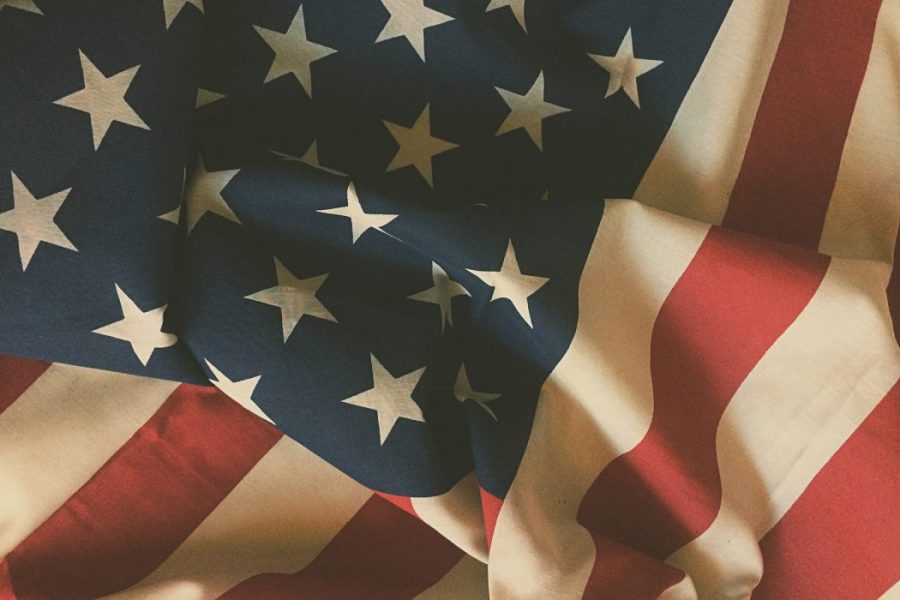
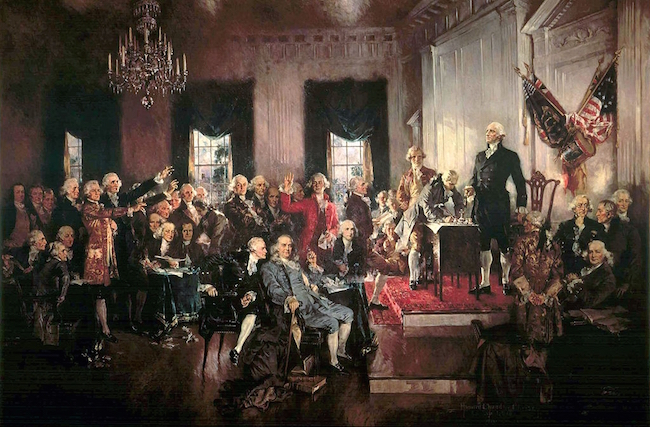 The JMC First Amendment Library
The JMC First Amendment Library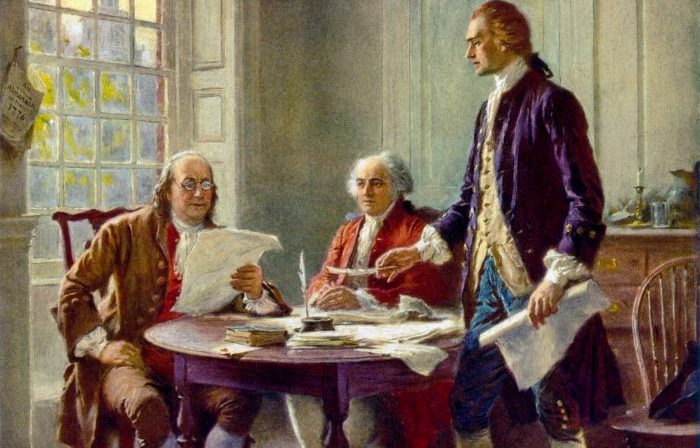 The National Constitution Center
The National Constitution Center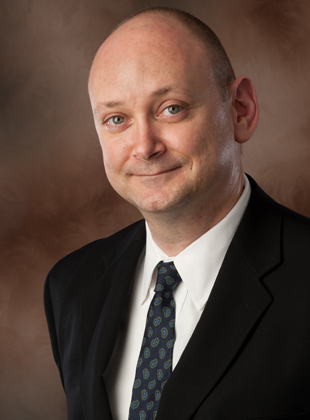 Fellow Greg Weiner’s Views on Teaching Constitution Day
Fellow Greg Weiner’s Views on Teaching Constitution Day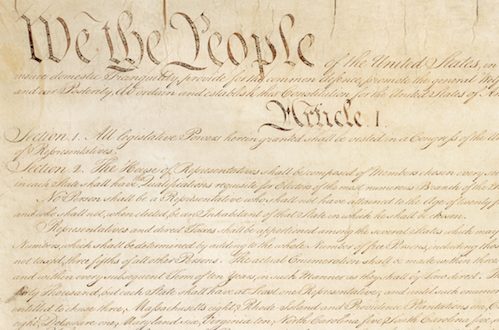 Constitution Day at the National Archives
Constitution Day at the National Archives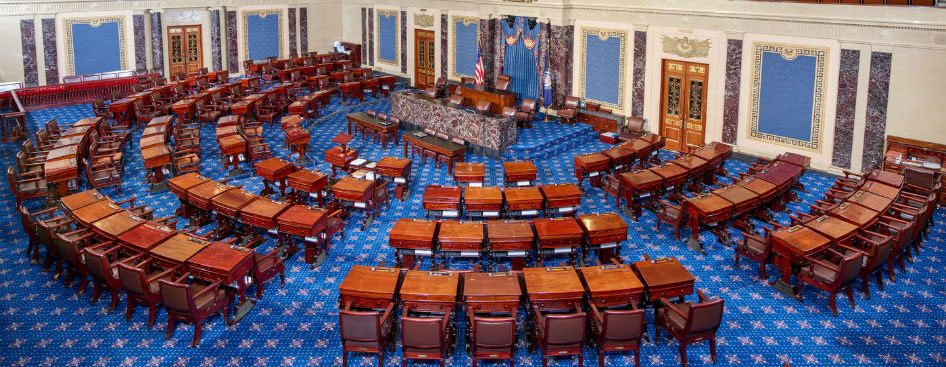 The United States Senate on Constitution Day
The United States Senate on Constitution Day